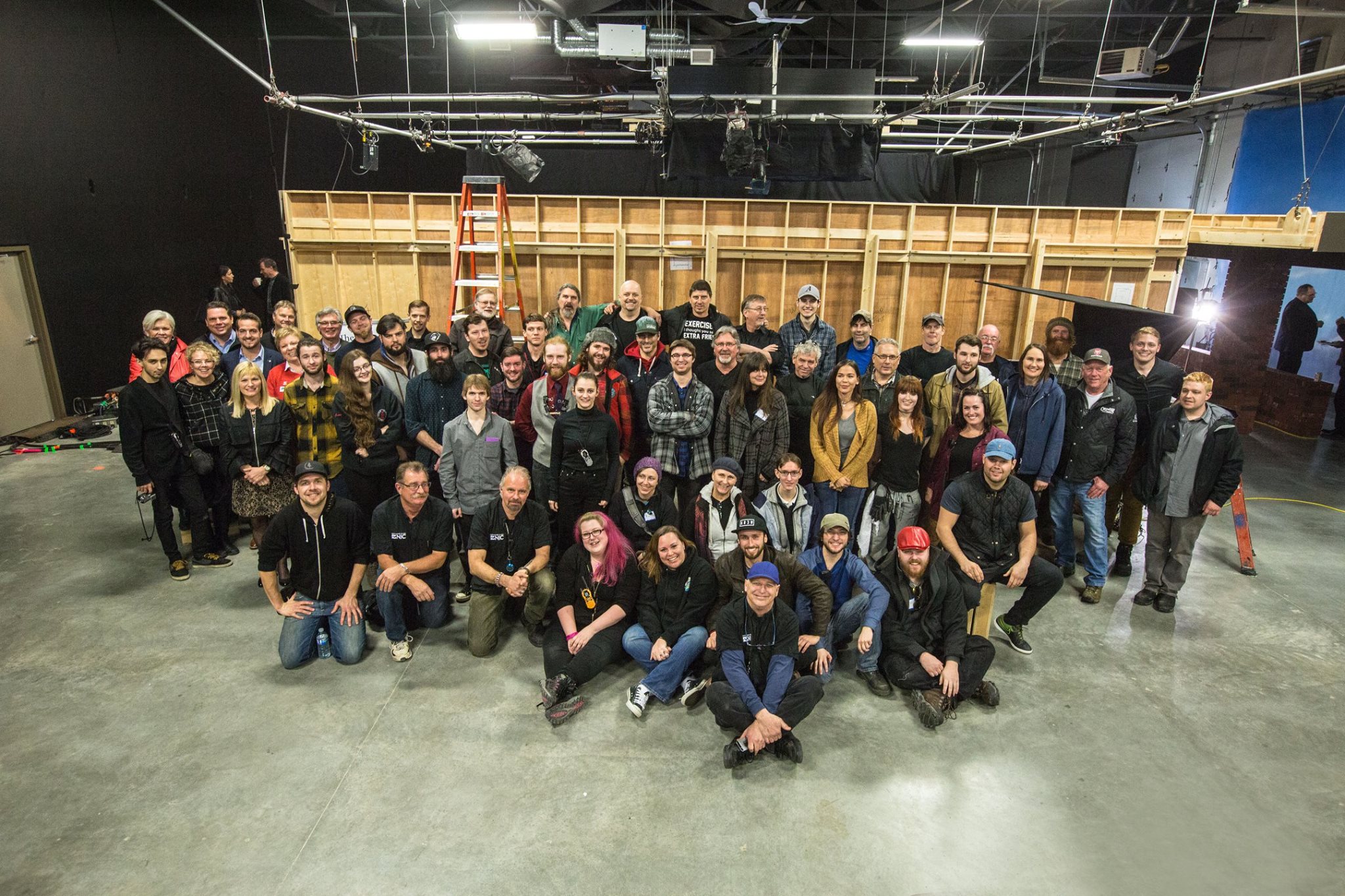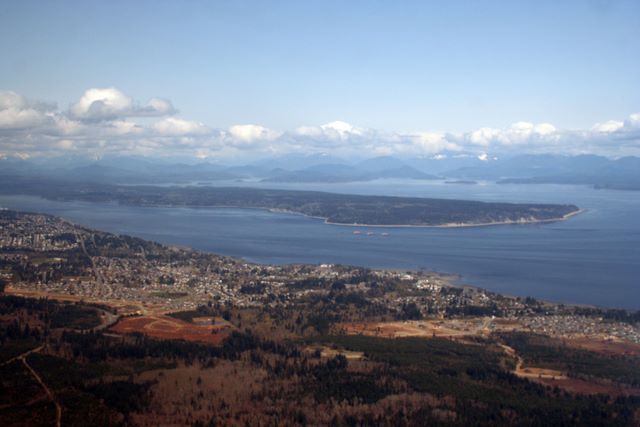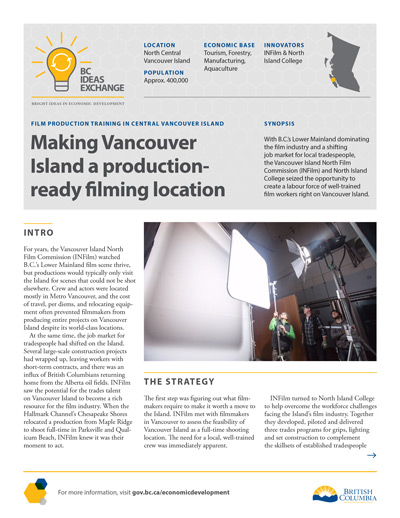Building a Competitive Local Film Industry through Workforce Training
North Central Vancouver Island
For years, the Vancouver Island North Film Commission (INFilm) watched B.C.’s Lower Mainland film scene thrive, but productions would typically only visit the Island for scenes that could not be shot elsewhere. Crew and actors were located mostly in Metro Vancouver, and the cost of travel, per diems, and relocating equipment often prevented filmmakers from producing entire projects on Vancouver Island despite its world-class locations.
At the same time, the job market for tradespeople had shifted on the Island. Several large-scale construction projects had wrapped up, leaving workers with short-term contracts, and there was an influx of British Columbians returning home from the Alberta oil fields. INFilm saw the potential for the trades talent on Vancouver Island to become a rich resource for the film industry. When the Hallmark Channel’s Chesapeake Shores relocated a production from Maple Ridge to shoot full-time in Parksville and Qualicum Beach, INFilm knew it was their moment to act.
The Strategy
The first step was figuring out what filmmakers require to make it worth a move to the Island. INFilm met with filmmakers in Vancouver to assess the feasibility of Vancouver Island as a full-time shooting location. The need for a local, well-trained crew was immediately apparent.
INFilm turned to North Island College to help overcome the workforce challenges facing the Island’s film industry. Together they developed, piloted and delivered three trades programs for grips, lighting and set construction to complement the skillsets of established tradespeople and the training of recent North Island College graduates. A separate course was designed for production assistants, a position that had limited career advancement without formal training.

The first round of courses, with funding support from B.C.’s Sector Labour Market Partnerships program, were piloted in the 2017-18 academic year at the college, along with two sessions of the production assistant training program in Campbell River and Port Alberni. The programs were thoroughly promoted, including talks with labour groups about the prospective benefits to their members, and in-person conversations with local First Nations to make sure all communities were connected to developments in the program.
Successes
In total, the program ran eight sessions with a total of 137 students. Of those who signed up for a course, 96% completed it. The programs were well-received, and graduates left excited and well-prepared, with a number of certifications, licences and tickets to add value throughout the film industry. Three months after completion, the program is meeting or exceeding its targets for graduate employment.
The promotion efforts from INFilm and North Island College led to quick, enthusiastic industry recognition of the program. The Directors Guild of Canada waived the usual 30-days-on-set requirement for graduates to begin logging hours toward their certification. Graduates are also recognized by major film unions including the International Alliance of Theatrical and Stage Employees and the Association of Canadian Film Craftspeople.
The spinoff benefits of the training program have already begun to show. Chesapeake Shores has renewed for a third season on the Island, and the private sector is taking the opportunity to offer studio space for local productions. There are also ongoing efforts to establish an inventory of production equipment on the Island, removing the need to ship gear from the Lower Mainland.
Lessons Learned and Final Thoughts
- Trust that your local talent can be the backbone of development in a new sector, if people are given the right opportunities.
- Recognize when the time is right to push new initiatives. Economic trends, local resources, and communal will are all important factors.
- Wherever possible, bring people together. Draw from local resources and gauge the interest of all relevant parties.
- When bringing a new, bold idea to life, promote it everywhere. Get people excited and create trust in your initiative.
To learn more, check out the BC Ideas Exchange Showcase webinar with guest speakers Joan Miller (INFilm), Cheryl O’Connell (North Island College), and Joey Rotenberg (Ucluelet Chamber of Commerce).

North Central Vancouver Island
Population: Approx. 400,000
Location: Vancouver Island/Coast
Economic Base: Tourism, Forestry, Manufacturing, Aquaculture


